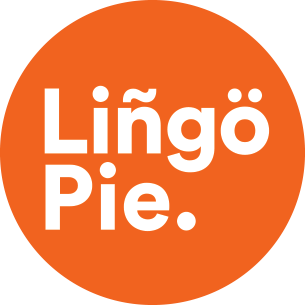If you're reading this post, I bet you're probably scratching your head thinking, "Should I even learn Greek?" Your worry is actually valid, especially if you consider how the FSI categorizes Greek as a Category IV language. That ranking actually puts it in the same difficulty bracket as Arabic and Mandarin Chinese.
However, I want you to know that learning Greek is possible...if you have the right strategy! Most people waste months jumping between apps and textbooks without a clear plan, then wonder why they're still struggling with basic conversations.
This guide gives you a proven roadmap that focuses on consistency over intensity, helping you build real Greek skills whether you're planning to explore Athens or dive into ancient philosophy.
- 5 Greek Documentaries To Improve Your Greek Skills
- 25+ Greek Slang Words That Make You Sound Like a Local
- 6 Best Greek Language Apps For Beginners

What Is The Best Way To Learn Greek?
The best way to learn Greek is through daily 30-45 minute practice sessions combined with smart resource selection that matches your specific goals. Successful learners focus on using the language from day one rather than just studying about it.
Another important thing to consider is that you need to be clear what your goal and lifestyle is. For instance, business professionals often prefer structured apps during commutes. On the other hand, students might choose formal classes for academic credit. Travelers may even focus on more practical phrases and survival vocabulary.
How To Learn Greek From Scratch
Starting with zero Greek knowledge feels daunting, yet millions have succeeded before you. Break the process into manageable steps that build upon each other naturally.
Set Your Goals

Before diving into Greek lessons, take some time to clarify exactly what you want to achieve and how you plan to get there. This initial planning stage will save you months of inefficient studying later on.
Start by answering these fundamental questions honestly:
- Do you want conversational fluency or academic proficiency?
- Will you visit Greece within the next year?
- How much time can you realistically commit daily?
- Do you learn better through apps, books, or conversations?
Next, write down specific, measurable goals that give you clear direction. For example, saying "Learn Greek" stays too vague to guide your daily actions. Instead, try something like "Order food confidently in Greek restaurants within three months" - this gives you both direction and a concrete deadline to work toward.
Also consider how your personal interests should shape your learning priorities. For instance, business travelers might focus heavily on formal phrases and professional vocabulary, while ancient history enthusiasts could emphasize reading comprehension over conversational skills.
Learn The Greek Alphabet
The Greek alphabet forms the foundation of everything you'll read and write, so investing time here will pay dividends throughout your learning journey. While you might recognize some letters from mathematics classes (like π, Σ, or Ω), the complete alphabet contains 24 letters: 7 vowels and 17 consonants.
I recommend starting with simple recognition before moving to actual writing practice. During your first week, focus entirely on identifying each letter when you see it in isolation. Then, once recognition feels automatic, begin practising writing them by hand - this motor memory component significantly helps with long-term retention.
To speed up this process, download alphabet practice sheets or use flashcard apps designed specifically for Greek letters. With consistent daily practice, you should achieve automatic recognition within about two weeks.
Immerse In Greek Media

Surrounding yourself with authentic Greek content accelerates your progress far beyond what traditional textbook methods can achieve. Your brain needs thousands of exposures to internalize pronunciation patterns, rhythm, and the natural flow of conversation.
- Movies and TV shows offer the most comprehensive immersion experience. For structured learning, platforms like Lingopie specialize in language learning through Greek TV shows and movies, providing interactive subtitles and smart tools designed for learning.
- Music provides enjoyable repetition that helps with pronunciation and rhythm. Start with slower Greek ballads before attempting rapid-fire lyrics in other genres.
- Podcasts serve different learning purposes depending on your level. Some podcasts are specifically for learning Greek, but I highly recommend those regular ones with live conversations to learn natural speech patterns.
- Social media also offers daily exposure to contemporary Greek. Follow Instagram accounts, Facebook pages, and Twitter feeds related to your personal interests.
To make the most of these Greek media, start with just 15-20 minutes of exposure daily. Don't worry about understanding everything initially, as your primary goal is familiarisation with sounds, rhythm, and common word patterns.
Memorize Basic Greek Words And Phrases

Building a solid vocabulary foundation requires a systematic approach rather than random word collection. The most efficient strategy involves focusing on high-frequency words that appear across multiple contexts. I suggest organizing your vocabulary learning around these essential categories:
- Greetings: Γεια σας (hello), αντίο (goodbye), παρακαλώ (please)
- Numbers: ένα (one), δύο (two), τρία (three)
- Time: σήμερα (today), αύριο (tomorrow), χθες (yesterday)
- Food: νερό (water), ψωμί (bread), κρέας (meat)
- Directions: δεξιά (right), αριστερά (left), ευθεία (straight)
For long-term retention, consider using spaced repetition systems like Anki, Lingopie, or Memrise. These programs are particularly effective because they show you words just before you're likely to forget them, which maximizes long-term memory formation.
Additionally, try creating personal connections with new vocabulary or phrase to accelerate recall. For instance, when learning "φίλος" (friend), you might connect it to "philosophy" (love of wisdom) since both share Greek roots.
Practice Your Greek

Speaking practice should begin early, even when you feel unprepared. Start by recording yourself reading Greek texts aloud, then compare your pronunciation to native speakers on Greek media. As you gain confidence, join online conversation groups through apps like HelloTalk or Tandem, where you can practice with native speakers in a supportive environment.
Aside from speaking, be sure to do some writing practice. Begin by keeping a simple journal in Greek, starting with basic sentences describing your day: "Σήμερα έφαγα μήλο" (Today I ate an apple). Over time, gradually expand to full paragraphs and more complex thoughts.
If you've got some downtime, you should also improve your listening skills by doing some shadowing exercises. Shadowing is a great technique because it allows you to improve both pronunciation and processing speed.
Assess Your Progress

When learning a langauge like Greek, it's also important to evaluate your learning to keep you on track and motivated. This can be done through simple counting of how many words or phrases you know, comparing your recordings, or taking online quizzes.
If you're learning Greek for the sake of moving abroad, you might also want to try practice tests based on CEFR. Depending on your country, you might also find langauge schools that can give placement tests.

Resources For Learning Greek
Rather than trying to use every available resource, focus on selecting 2-3 tools that complement each other and match your preferred learning style.
Greek Language Apps
Mobile apps offer the convenience of learning anywhere, anytime, which makes them particularly valuable for maintaining daily consistency. However, the quality and focus vary significantly between different platforms.
- Lingopie: Specialized platform for learning Greek through authentic TV shows and movies, featuring interactive subtitles and built-in vocabulary tools that make entertainment-based learning highly effective.
- Duolingo: Free, gamified lessons perfect for building study habits through short daily sessions.
- Babbel: Subscription-based app focusing on practical conversation skills rather than just vocabulary memorization.
- Clozemaster: Advanced app that uses real Greek sentences with missing words, specifically designed to bridge the gap between beginner knowledge and native-level comprehension.
Greek Flashcards
Spaced repetition through flashcards remains one of the most scientifically-proven methods for long-term vocabulary retention.
- Physical cards: Traditional approach where you write Greek on one side and English on the other. Completely portable and reliable, requiring no technology or internet connection for study sessions.
- Anki digital system: Sophisticated spaced repetition algorithms that optimize review timing based on your individual memory patterns. Pre-made Greek decks are available for download, covering everything from basic vocabulary to advanced literary terms.
- Lingopie video-based flashcards: Unique approach that creates flashcards directly from Greek TV shows and movies you watch on the platform. These cards include video clips showing the word in context, which helps with pronunciation, cultural understanding, and natural usage patterns.
Greek Grammar Books
Comprehensive grammar references provide the systematic understanding that apps and conversation practice often miss. These resources are particularly valuable for understanding the "why" behind Greek language patterns, helping you move beyond memorized phrases to actually constructing your own sentences with confidence.
When selecting a grammar book, consider whether you prefer detailed academic explanations or practical, streamlined approaches focused on everyday usage. Some learners thrive with comprehensive references they can dive deep into, while others prefer concise guides that cover the essentials without overwhelming detail.
Physical/Online Greek Classes
Structured instruction with qualified teachers provides accountability, systematic progression, and immediate feedback that self-study cannot match. The choice between physical and online classes depends on your schedule, budget, and learning preferences.
- University courses: Most comprehensive option with structured curriculum and academic credits.
- Community colleges: More affordable alternative with evening and weekend schedules for working adults.
- Private tutors: Completely personalized instruction that addresses your specific weaknesses and learning pace.
- Online platforms (iTalki, Preply): Connect you with native Greek teachers globally at lower costs than local tutors.
- Greek cultural centers: Many cities have Hellenic societies offering language classes alongside cultural activities.
Start Learning Greek The Right Way Today
Every fluent Greek speaker started exactly where you are now - confused by the alphabet, stumbling through basic phrases, and wondering if they'd ever understand native conversations.
My advice for you now is to simply begin. Begin today with whatever method appeals to you most, stay consistent, and you’ll be surprised how quickly Greek starts making sense. And if ever you want to progress fast, don't forget to try Lingopie!
Καλή επιτυχία! (Good luck!)


![What Is The Best Way To Learn Greek? Guide + Tips [2026]](/blog/content/images/size/w1200/2025/07/Best-way-to-learn-greek.jpg)




![7 Best Greek TV Series You Need To Watch Today [2026]](/blog/content/images/size/w300/2026/02/Greek-TV-Shows.jpg)
![How To Say I Love You In Greek Like A Native Speaker [GUIDE]](/blog/content/images/size/w300/2026/02/How-To-Say-I-Love-You-In-Greek.png)
![How To Say Happy New Year In Greek [Guide]](/blog/content/images/size/w300/2025/12/how-to-say-happu-new-year-In-Greek-1.png)
